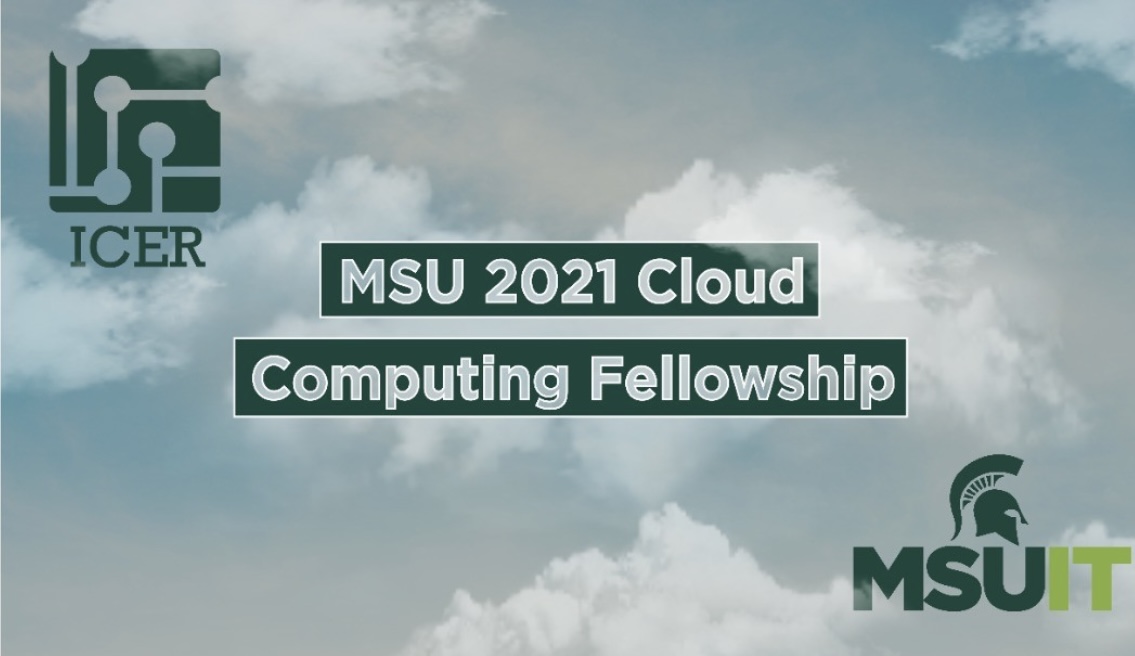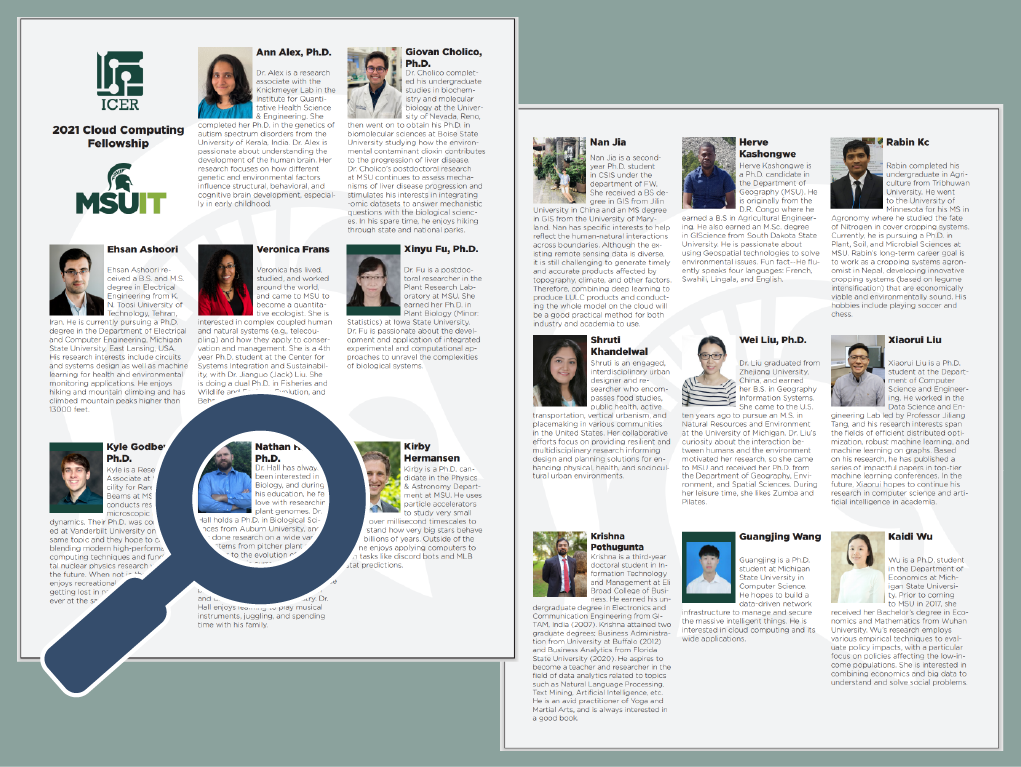Introducing the 2021 MSU Cloud Computing Fellows

MSU’s Institute for Cyber-Enabled Research (ICER) and the ITS Analytics and Data Solutions (ADS) group are proud to announce the next cohort of MSU Cloud Computing Fellows!
Congratulations to:
Ann Alex, Ph.D. / Institute for Quantitative Health Science & Engineering
Giovan Cholico, Ph.D. / Biochemistry & Molecular Biology
Ehsan Ashoori / Electrical and Computer Engineering
Veronica Frans / Fisheries and Wildlife and Ecology, Evolution, and Behavior.
Xinyu Fu, Ph.D. / Plant Research Laboratory
Kyle Godbey, Ph.D. / Facility for Rare Isotope Beams
Nathan Hall, Ph.D. / Department of Plant, Soil and Microbial Sciences
Kirby Hermansen / Physics & Astronomy Department
Nan Jia / Fisheries and Wildlife
Herve Kashongwe / Department of Geography
Rabin Kc / Plant, Soil, and Microbial Sciences
Shruti Khandelwal / Urban and Regional Planning
Wei Liu, Ph.D. / Department of Geography
Xiaorui Liu / Department of Computer Science and Engineering
Krishna Pothugunta / Information Technology and Management
Guangjing Wang / Computer Science
Kaidi Wu / Department of Economics

Learn more about the fellows by checking out their bios here
The MSU Cloud Computing Fellowship will begin with a series of group sessions that cover a wide range of topics relating to cloud computing. This first phase will include presentations on cloud concepts and workshops with hands-on exploration of cloud resources. During the second phase, fellows will work with Pat Bills from ADS and Dr. Mahmoud Parvizi from ICER to design cloud-based workflows applied to research projects supporting the broader efforts of their current research group.
This cohort consists of Michigan State University graduate students and postdoctoral research associates from a diverse set of backgrounds with a multitude of research interests.
“The fellows should be thought of as early adopters of cloud computing for academic research who will push the boundaries of the traditional roles of high-performance computing,” remarked Parvizi. “They are the frontline researchers and future principal investigators from diverse academic fields who will most certainly influence the course of important research initiatives that leverage ever-evolving computational tools to great effect.”
“Even if these researchers don't directly use cloud computing in their future careers,” Bills added, “understanding the nature of cloud computing and workflow thinking will be essential for success in the future world of research for almost all disciplines.”
Now a fellowship organizer, Parvizi was once a cloud fellow himself (postdoc-19). On the impact of the fellowship, he stated: “Completing their proposed research project by incorporating cloud-computing resources provides each fellow with real-world experience in selecting, applying, and evaluating cutting-edge computational tools to academic research.”
The fellowship will culminate in an exciting symposium showcasing cloud computing implementations for each fellow’s unique project.
